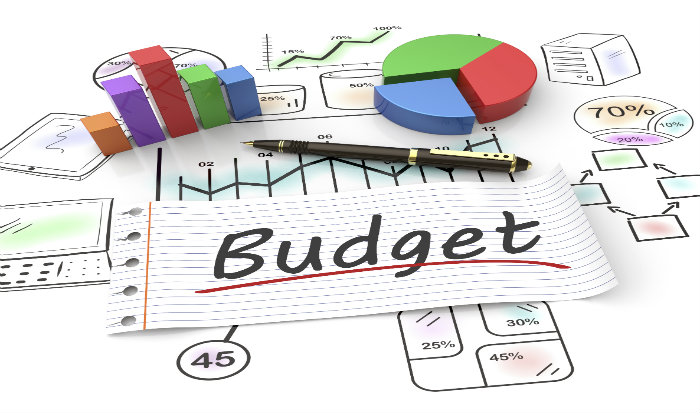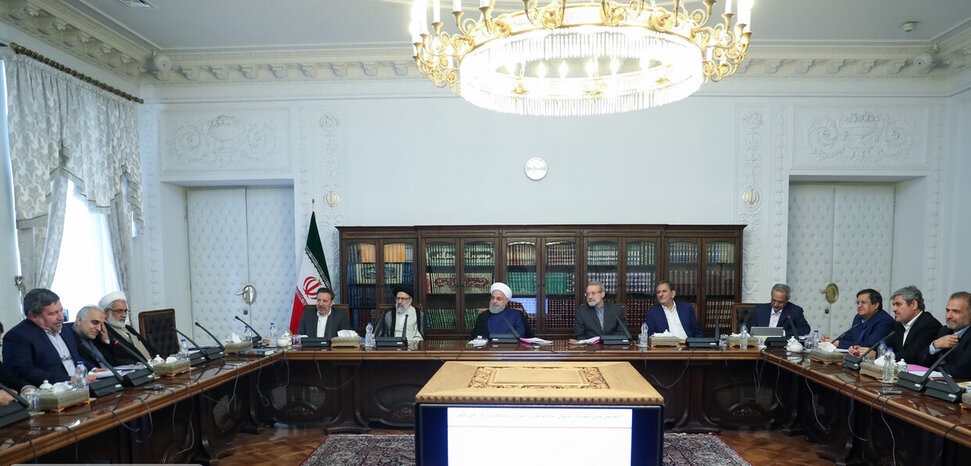
Budget bill amendments approved


The generalities of a modified budget plan which has been restructured in line with the country’s “resilient economy”, were approved during a Supreme Council of Economic Coordination convention presided by Iranian President Hassan Rouhani.
The modifications consist of four major parts, which are “sustainable revenue resources”, “effective expenditure”, “promoting stability, development and justice” as well as “fundamental modifications of budgetary system”.
They are aimed at reducing the country’s dependence on oil money and promoting economic stability under the umbrella term “resistance economy”, ordered by Supreme Leader of the Islamic Revolution Ayatollah Seyyed Ali Khamenei.
As reported, the council will study the priorities in this amendment plan in its next gathering.
Govt. mulling over a biennial budget plan
One of the major issues, which was discussed during the council meeting for budget bill restructure, was a proposal for preparing the country’s budget bill on a biennial basis, Iran’s Finance and Economic Affairs Minister Farhad Dejpasand said on Sunday.
“Of course this is in contradiction with the country’s constitution, so the issue is still under consideration,” the minister stated.
Iran is pressing to reduce its dependence on oil sales, especially after the U.S. reimposed sanctions on the country last year.
The issue came of the highest importance due to Trump’s decision on cutting all waivers of Iranian oil which would dramatically decrease the country’s oil revenues.
In June, Iran’s Planning and Budget Organization (PBO) published a report titled “Budget Amendment Outline” including 23 major policies, with cutting budget’s direct dependence on oil income as the major approach.
The organization published the report on its website, announcing that this report was due to be investigated in supreme council of economic coordination.
As reported, the outlines were prepared with the aim of supplying reliable source of budget for the country and promoting the government’s performance in this due, supporting production and employment, setting stability in macro economy and elevating the people’s livelihood status.
In late December, President Hassan Rouhani presented the administration’s draft of the national budget bill for the current Iranian calendar year 1398 to the Majlis.
The proposed bill amounts to 17.03 quadrillion rials (about $405 billion at the official rate of 42,000 rials).
Earlier in the same month, Dejpasand had said that reducing the budget dependency on oil exports is the most important economic objective in the country.


Gold price edges up as market awaits Fed minutes, Powell speech

Glencore trader who led ill-fated battery recycling push to exit

Emirates Global Aluminium unit to exit Guinea after mine seized

UBS lifts 2026 gold forecasts on US macro risks

Iron ore price dips on China blast furnace cuts, US trade restrictions

Roshel, Swebor partner to produce ballistic-grade steel in Canada

EverMetal launches US-based critical metals recycling platform

US hikes steel, aluminum tariffs on imported wind turbines, cranes, railcars

Afghanistan says China seeks its participation in Belt and Road Initiative

First Quantum drops plan to sell stakes in Zambia copper mines

Ivanhoe advances Kamoa dewatering plan, plans forecasts

Texas factory gives Chinese copper firm an edge in tariff war

Pan American locks in $2.1B takeover of MAG Silver

Iron ore prices hit one-week high after fatal incident halts Rio Tinto’s Simandou project

US adds copper, potash, silicon in critical minerals list shake-up

Barrick’s Reko Diq in line for $410M ADB backing

Gold price gains 1% as Powell gives dovish signal

Electra converts debt, launches $30M raise to jumpstart stalled cobalt refinery

Gold boom drives rising costs for Aussie producers

First Quantum drops plan to sell stakes in Zambia copper mines

Ivanhoe advances Kamoa dewatering plan, plans forecasts

Texas factory gives Chinese copper firm an edge in tariff war

Pan American locks in $2.1B takeover of MAG Silver

Iron ore prices hit one-week high after fatal incident halts Rio Tinto’s Simandou project

US adds copper, potash, silicon in critical minerals list shake-up

Barrick’s Reko Diq in line for $410M ADB backing

Gold price gains 1% as Powell gives dovish signal

Electra converts debt, launches $30M raise to jumpstart stalled cobalt refinery
















